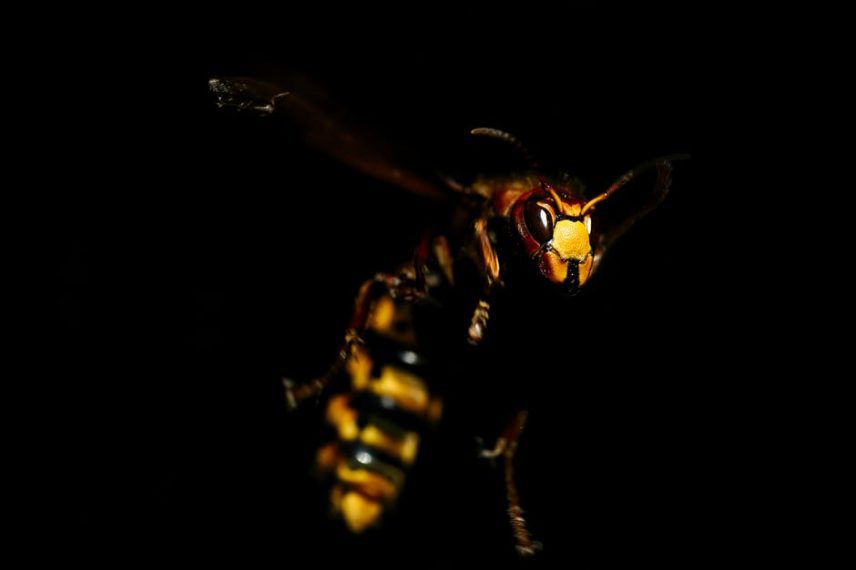Did you know that all hornets are wasps but not all wasps are necessarily hornets? This may sound confusing at first; however, knowing the difference between these two insects can be very important. Finding the difference between a wasp vs hornet can be difficult if you don’t know what to look for.
All most people know is that if the insect has a stinger, you should stay away from it. This applies to the bee vs wasp vs hornet argument as well, even though bees are relatively docile creatures.
While we will not be discussing much about the bees vs wasps difference, we will be going in-depth about wasps and hornets. The reason why you should care about these insects is that they are beneficial to the environment. This is because they can pollinate plants and kill off various pests.
Without wasting any more time, let’s first see what you should know about wasps.
What Are Wasps
Wasps have a long history spanning back hundreds of millions of years. The most common types of wasps are paper wasps and yellow jackets. As mentioned previously, hornets are a certain type of wasp, but we’ll explore that topic in a moment.
Wasps, like hornets, have six legs, a stinger, and have wings granting them the ability to fly. Both wasps and hornets are unique in comparison to honeybees because of their ability to sting.
Honeybees can only sting once, leaving their stinger in the skin of their victim. On the other hand, wasps and hornets can sting as many times as they want, so be careful around these insects if they seem irritable. Interestingly, however, only the females of both of these species are able to sting.
Wasps are small and slender insects usually no more than an inch big. Wasps may also not have the yellow and black stripes you may expect. Instead, wasps may have red and blue stripes mixed with black, though they may, of course, have yellow stripes as well.
The body of a wasp is divided into three parts: the head, the thorax, and the abdomen. Wasps are famous for their very narrow “wasp waists,” which is an easy way to identify them.
When being stung by a wasp, you may notice that it is not very painful. They are also relatively solitary insects, so you don’t need to worry about getting swarmed by them unless you have irritated their nest. They also will not be interested in attacking you unless you provoke them first by swatting at them.
However, if you find a wasp nest near your home, should you be worried? Should you do anything about it?
What You Should Do About Wasp Nests
Wasp nests are usually made of very small pieces of wood. The problem with having a wasp near your home is that there is a much higher risk of you irritating the wasps, even if you don’t mean to.
You are in their territory, and they might feel the need to attack. However, this doesn’t mean you should destroy the nest and kill all the wasps.
Since wasps tend to kill other insects to feed to their young, you might have other problems on your hands if you kill wasps. These problems come in the form of black widow spiders and other undesired insects. So, what should you do about a wasp nest?
The best option is to call a professional. A professional will have the skills and the tools to safely remove a wasp nest from your property. The nest can then be moved to a better place where it will not be a hindrance to humans.
So, now that you know about wasps, what should you know about hornets?
What Are Hornets
The major difference between wasps and hornets is that hornets tend to be much larger. Instead of having a slender wasp waist, hornets tend to be a much bulkier kind of insect, especially around the abdomen and thorax. In fact, some kinds of hornets, such as the Asian giant hornet, can grow as large as two inches which is more or less the size of your thumb.
If you’ve ever been stung by a hornet, you know that it packs a much more painful punch compared to the sting of a wasp. This is not because a hornet’s stinger is so much more vicious than a wasp’s. Instead, it’s because hornets are able to inject a neurotoxin into its victim.
While in most cases, this neurotoxin is simply painful, it can sometimes be deadly if you have a hornet allergy. If you’re unsure if you have a hornet allergy, err on the side of caution if you happen to see one.
Hornets are easily identifiable because, besides being large, they often have black and yellow stripes. They essentially look like overgrown bees. Another way to identify them is to check if they travel in groups.
While wasps tend to be solitary, hornets are much more social insects. For identification purposes, you could also check on what kind of nest they have.
While wasps, as previously mentioned, have papery nests made of wood, hornets tend to have much sturdier nests. Many hornets prefer to make their nests in the ground rather than in trees or on the side of buildings. This can make spotting the nest difficult, but if you notice a swarm of hornets nearby, there may be a nest hiding in the area as well.
Understanding the Difference Between a Wasp vs Hornet
Now that you know the difference between a wasp vs hornet, you also know why these insects are important to the environment. If wasps or hornets become a problem for you, instead of killing as many as you can, maybe opt for professional pest control services.
To learn more about this topic, contact us here.


